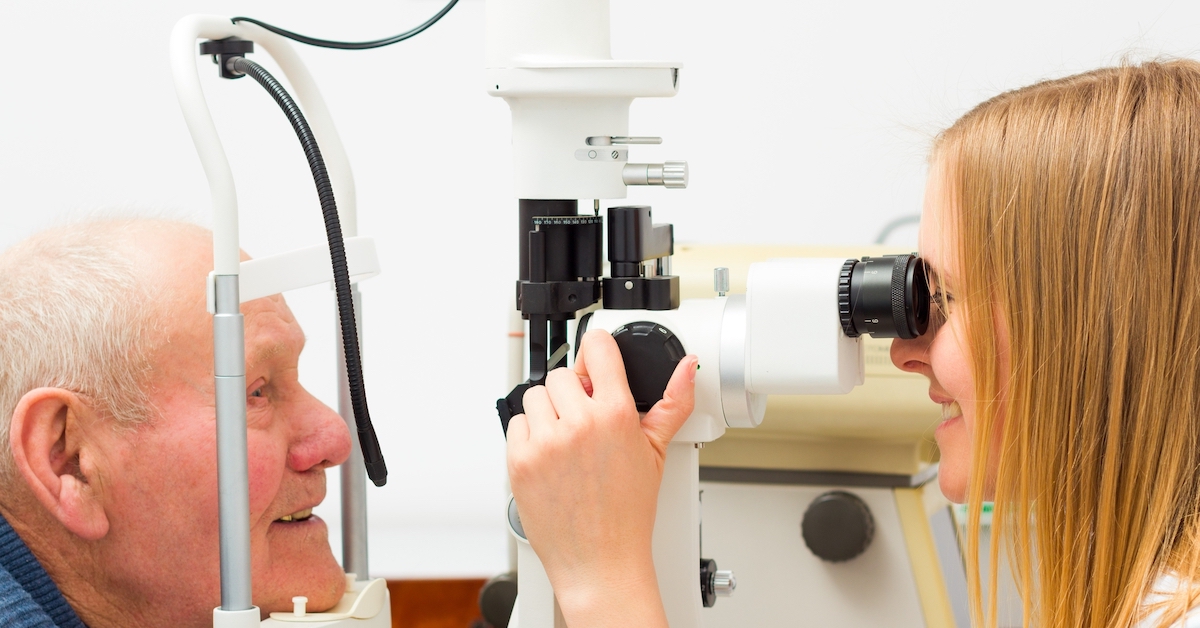Almost four million older American adults have cataract surgery annually, but better vision isn’t the only benefit, surprising new research reveals.1
A University of Washington study finds that adults who have undergone cataract surgery have a lower risk of developing dementia.2
Scientists have long linked the health of the eyes and the brain, but these findings are remarkable. Let’s take a closer look…
Sensory loss, such as vision and hearing loss, has long been of interest to researchers as it is a possible modifiable risk factor for dementia.
When epidemiology researchers recently examined the connection between vision health and the development of dementia, specifically looking at cloudy vision caused by cataracts, they made an exciting discovery.
After examining data from an observational study of more than 5,000 participants aged 65 and older, called The Adult Changes in Thought (ACT), they found those with treated cataracts had sharper memories.
30 Percent Lower Risk of Dementia
Based on the data of over 3,000 ACT study participants, researchers discovered that people who underwent cataract surgery had a nearly 30 percent lower risk of developing dementia from any cause compared with those who did not have the surgery.
What’s more, this decreased risk persisted for at least a decade after surgery! And, on top of that, researchers found cataract surgery was also associated with a lower risk of Alzheimer’s disease dementia, specifically.
“This kind of evidence is as good as it gets in epidemiology,” lead researcher Dr. Cecilia Lee says. “This is really exciting because no other medical intervention has shown such a strong association with lessening dementia risk in older individuals.”3
But how did the researchers of this study explain these remarkable findings?
First, let’s get a better understanding of the cataracts that plague so many aging adults.
How Cloudy Vision Damages the Brain
In a nutshell, cataracts are a clouding of the lenses that’s common in people as they age. In turn, their brains are receiving lower quality sensory input.
Dr. Lee explains that we are born with crystal clear lenses, but as we age, the lens gets yellow and cloudy.
“Because the lens becomes yellow, it’s almost like you’re wearing yellow sunglasses all the time,” Dr. Lee says.
Folks with cataracts may struggle with blurry vision and colors are often not as vibrant. Equally concerning, people suffering with cataracts are challenged with poor night vision. For one thing, the appearance of halos around bright lights make night driving especially difficult.4
Therefore, researchers theorize, the brain isn’t getting enough visual stimuli, which puts the individual at a higher risk of developing dementia because it’s losing those critical neuronic connections.
But that’s not the only theory researchers have …
Blue Light is Beneficial to the Brain
It appears that after cataract surgery, people receive more blue light to the retina, which is a better quality of light.
“Some special cells in the retina regulate sleep cycles and have been shown to be associated with cognition, and these cells respond well to blue light,” Dr. Lee says. “Cataracts specifically block blue light, and cataract surgery could reactivate those cells.”
My Takeaway
As with hearing aids, improved vision helps a person connect with the outside world better. Perhaps your social life improves post-surgery because driving to meet a friend at the cinema won’t be as difficult. Plus, exercise is easier when you can better see the path ahead of you.
And it’s worth noting that both socializing and exercise are shown to protect you against developing dementia.
“When your cataracts are gone, your vision improves immediately and you’re able to interact with this world better,” Dr. Lee adds.
This is especially helpful for folks who have a genetic predisposition to Alzheimer’s disease.
In an earlier study Dr. Lee and her team found that, for people with specific age-related eye diseases, the risk of developing dementia is “as significant” as someone with a strong genetic risk factor for Alzheimer’s disease.
My advice? Schedule an eye doctor appointment ASAP. Your future could get a whole lot clearer and your brain a lot sharper.
- https://idataresearch.com/over-3-8-million-cataract-surgeries-performed-every-year/
- https://jamanetwork.com/journals/jamainternalmedicine/fullarticle/2786583
- https://newsroom.uw.edu/news/study-cataract-surgery-linked-lessened-dementia-risk
- https://www.hopkinsmedicine.org/health/conditions-and-diseases/cataracts







